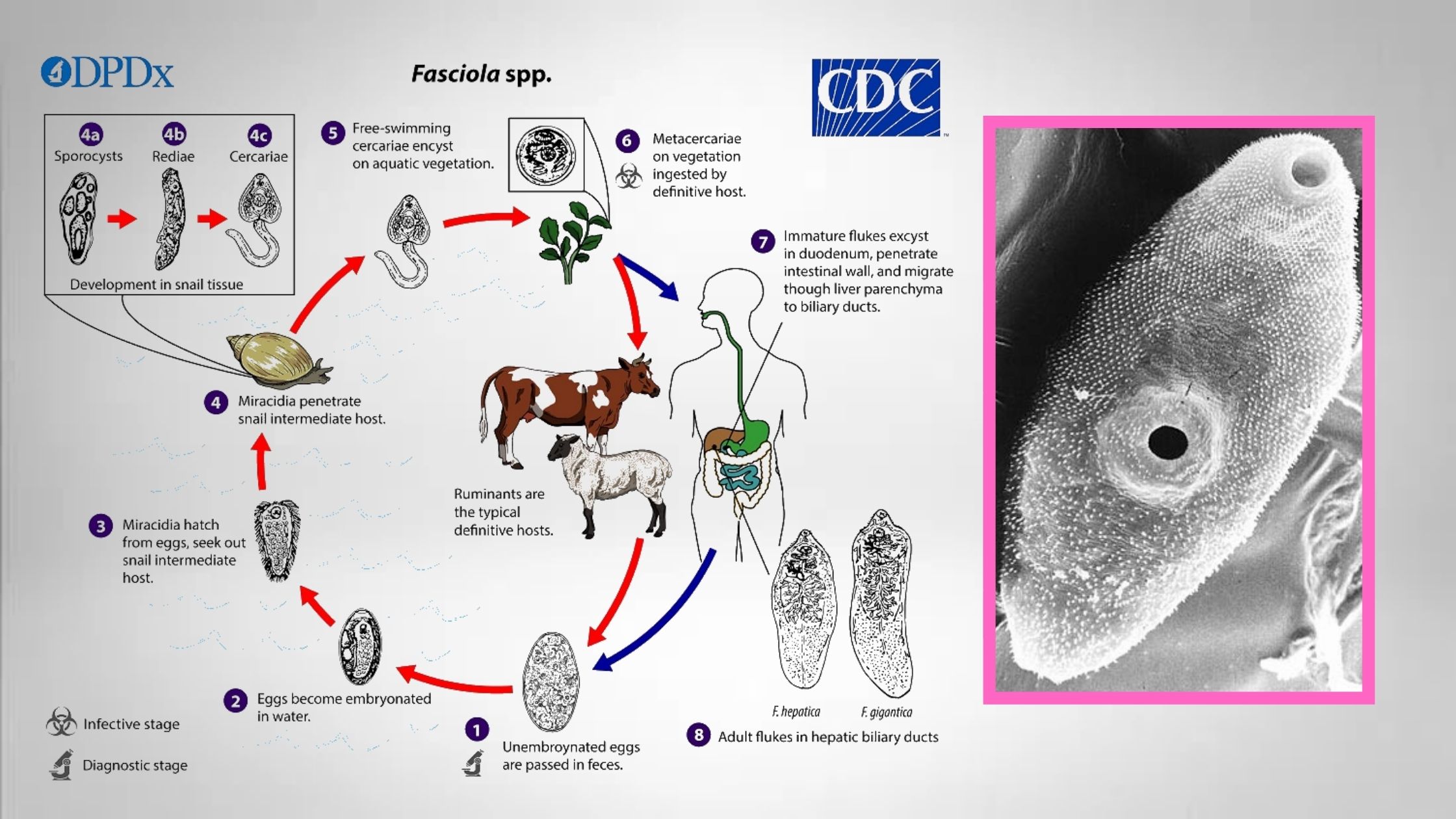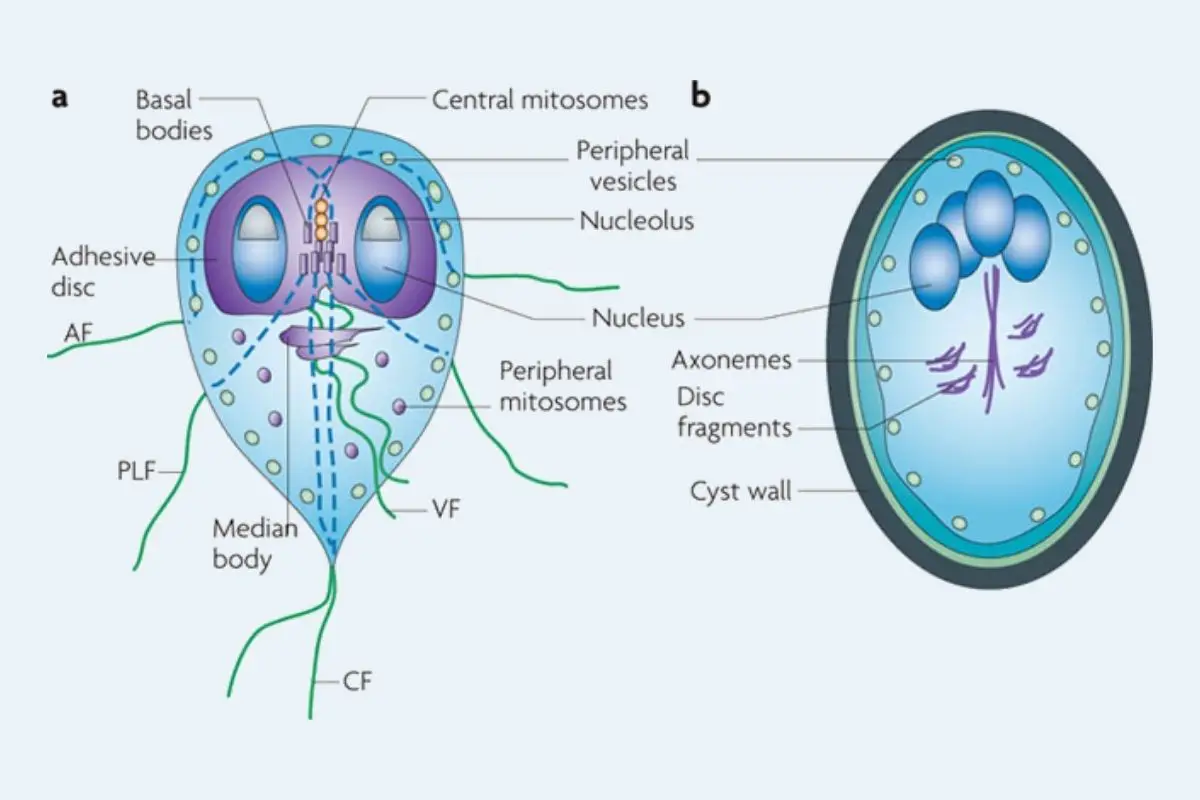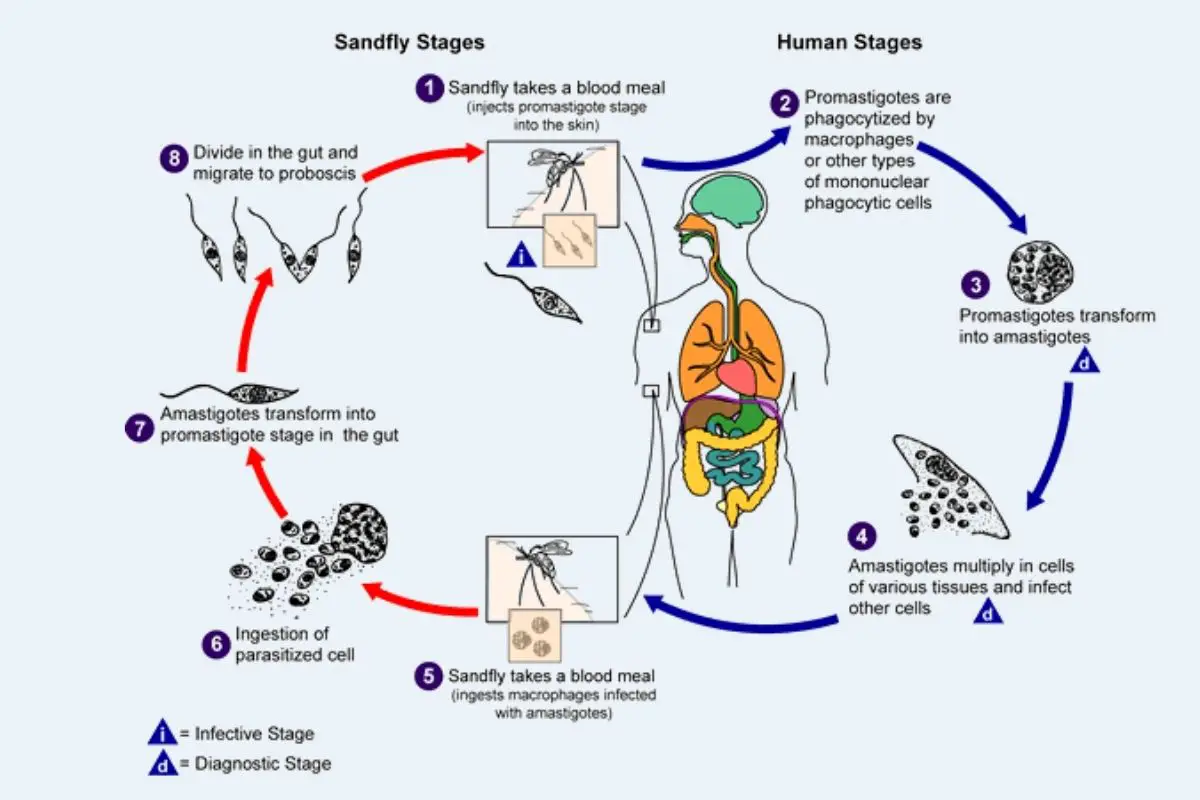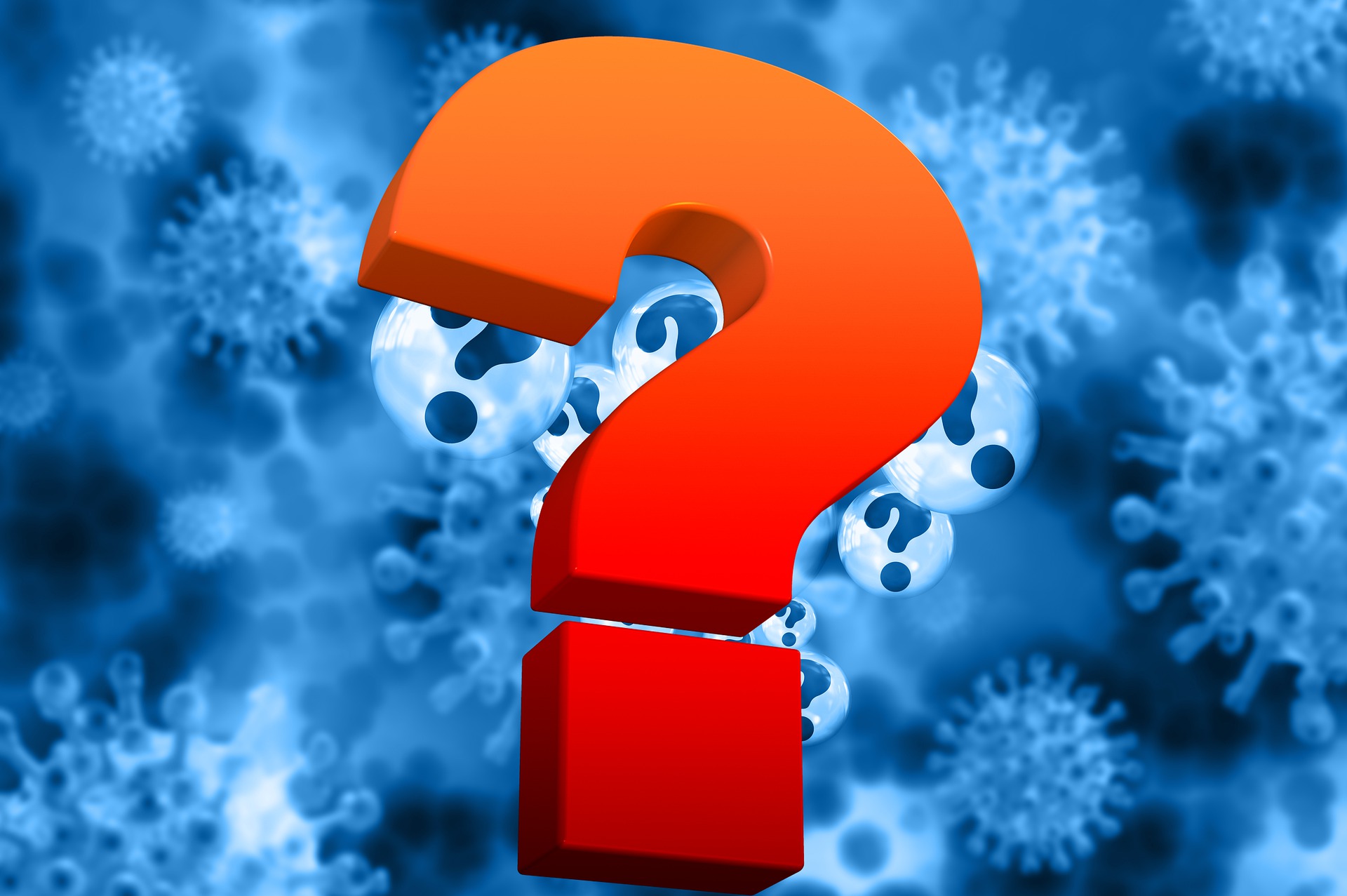Fascioliasis: Causative agent, Life cycle, Symptoms, Treatment.
Fascioliasis is an infectious disease caused by Fasciola parasites, which are flatworms referred to as liver flukes. The adult (mature) flukes are found in the bile ducts and liver of infected people and animals, such as sheep and cattle. In general, fascioliasis is more common in livestock and other animals than in people.




